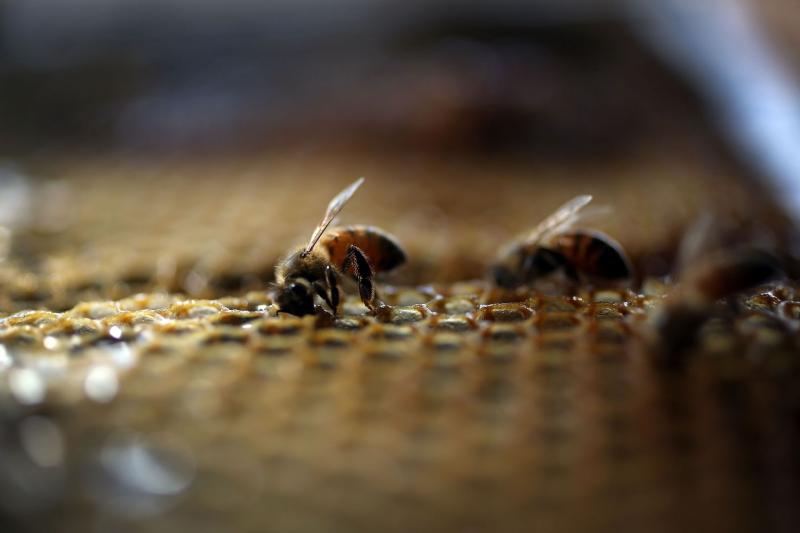 It is believed that bees unintentionally transfer the toxin from the flowers to their nectar. (Photo credit: Today Online)
It is believed that bees unintentionally transfer the toxin from the flowers to their nectar. (Photo credit: Today Online)Researchers in China have recently proposed the study of bee venom as a potential treatment for or preventive agent against infection with SARS-CoV-2, the virus that causes the novel coronavirus disease (COVID-19).
From 23 February to 8 March 2020, a total of 5,115 beekeepers were surveyed, including 723 in the city of Wuhan, the epicentre of COVID-19 in China. Surprisingly, none of the beekeepers developed symptoms related to COVID-19.
The researchers then interviewed five bee apitherapists in Wuhan and followed 121 patients who received apitherapy from October 2019 to December 2019. Of note, all five apitherapists apply self-apitherapy for their own healthcare. Apitherapy refers to the use of bee venom from the honeybee’s sting to treat or prevent certain diseases.
Of the five apitherapists, two were exposed to suspected COVID-19 cases and the rest were exposed to confirmed cases without any protective measures. None of them were infected eventually. Of the 121 patients, none were also infected by SARS-CoV-2, even though three of them had close contact with immediate family members with confirmed SARS-CoV-2 infection.
According to the researchers, it was possible that the beekeepers were less likely to be exposed to SARS-CoV-2 because they lived in less densely populated rural areas. However, the five apitherapists and their patients were from densely populated areas in Wuhan, and they seemed to have one thing in common: a tolerance to bee sting.
Although bee stings can cause allergic reactions and can even result in death due to the excessive stress response of the immune system, bee venom can “enhance the differentiation of human regulatory T cells, which play an important role in control of SARS-CoV infection.” [Allergy 2015;70:1340-1345.6; J Virol 2010;84:1289-1301; Toxicon 2018;154:74-78; JAMA Ophthalmol 2016;134:e161024; J Investig Allergol Clin Immunol 2018;28:45-46]
“Our purpose in writing this letter is to ask scholars with appropriate research conditions to test this assumption,” the researchers said. “In the absence of vaccine of SARS-CoV-2, if this method works, then it could offer one hope towards victory over COVID-19.”